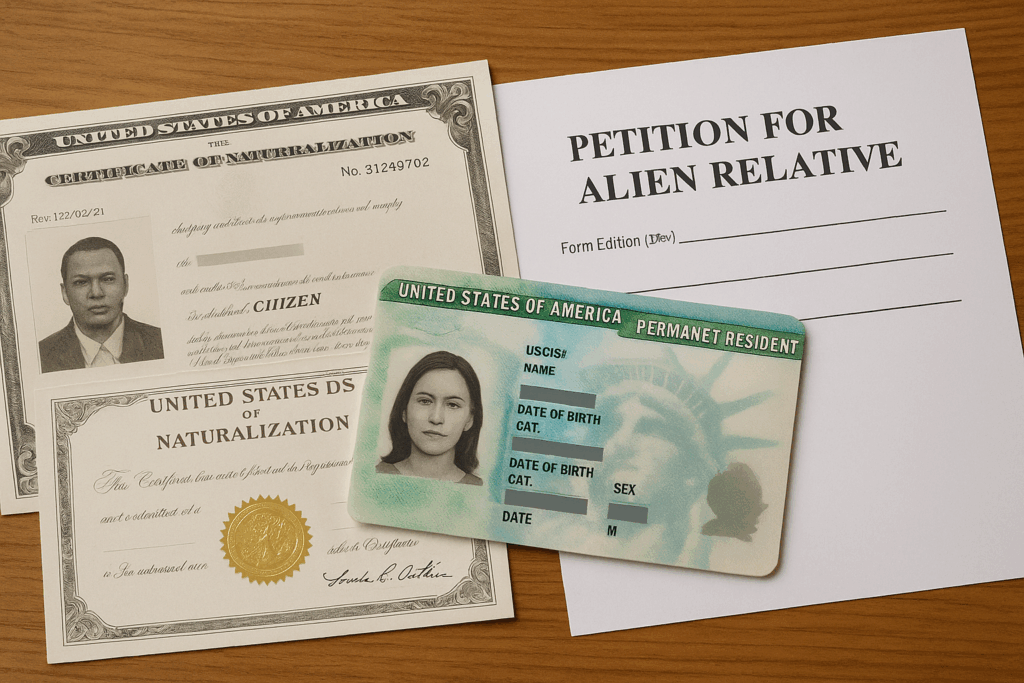When most people think about applying for a green card in the United States, they assume you need someone to sponsor you, either a family member, an employer, or a spouse. And in most cases, that’s true. But what many don’t know is that there are certain pathways that allow an individual to self-petition for a green card. In other words, yes, you can apply for a green card by yourself without a sponsor, but it’s not easy.
What Is a Self-Petition?
A self-petition means you file for permanent residency on your own behalf, without anyone else signing on as your petitioner. This is only available in specific categories, and each one comes with strict requirements and a high burden of proof. Just because it’s possible doesn’t mean it’s simple.
Who Can Apply on Their Own?
Here are the main categories where self-petitioning is allowed:
Extraordinary Ability (EB-1A)
This is for individuals with exceptional skills in the sciences, arts, education, business, or athletics. You must prove sustained national or international acclaim and show that your continued work in the U.S. will benefit the country. Evidence might include major awards, published work, or media coverage.
Why it’s hard: You have to meet a very high standard. Being good at your job isn’t enough. You need to show you’re at the top of your field.
National Interest Waiver (NIW – EB-2)
If your work is of significant value to the U.S. and it’s in the national interest to waive the job offer requirement, you can apply on your own. This is often used by researchers, scientists, healthcare professionals, and engineers working on major public-interest projects.
Why it’s hard: You must demonstrate that your work is not only important but also urgent and beneficial to the country at large. It takes strong documentation and often expert letters of support.
VAWA (Violence Against Women Act)
If you’ve been abused by a U.S. citizen or permanent resident spouse, parent, or child, you may self-petition under VAWA. This applies to both women and men.
Why it’s hard: You need to provide credible evidence of abuse, your relationship with the abuser, and that the marriage, if applicable, was entered in good faith. Privacy and emotional toll can also make the process overwhelming.
Asylum-Based Adjustment
If you were granted asylum in the U.S., you can apply for a green card one year later without a sponsor.
Why it’s hard: Getting asylum is already a complex and emotionally draining process. You must prove a well-founded fear of persecution in your home country.
Special Immigrant Juvenile Status (SIJ)
Certain undocumented minors who have been abused, abandoned, or neglected by one or both parents may qualify for a green card on their own through SIJ.
Why it’s hard: Requires state court findings, immigration petitions, and often legal representation, especially for children navigating a system meant for adults.
Diversity Visa (Green Card Lottery)
If you’re selected in the Diversity Visa Lottery, you don’t need a sponsor, but you must still meet education or work requirements.
Why it’s hard: It’s random. Millions apply each year, and only about 50,000 are selected. Even if you win, strict eligibility rules apply.
Why Self-Petitioning Isn’t Easy
While it might sound appealing to apply for a green card without relying on anyone, self-petitioning comes with its own set of challenges. You must provide strong, often overwhelming documentation. There is no margin for error, and a mistake can lead to denial or delay. The legal language is complex, and most people need an experienced immigration attorney to guide them. Some of these categories take years to process and are subject to visa caps or priority dates.
Final Thoughts
Yes, it is possible to apply for a green card by yourself, but only in certain situations and only if you meet very specific criteria. If you believe you may qualify for one of these categories, it’s worth speaking with an immigration attorney to evaluate your chances. Self-petitioning is an option for some, but it’s not a shortcut. It’s a demanding legal process that requires serious preparation and proof.
